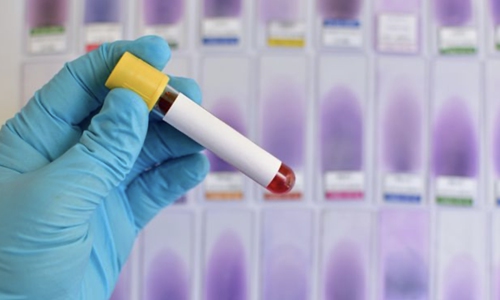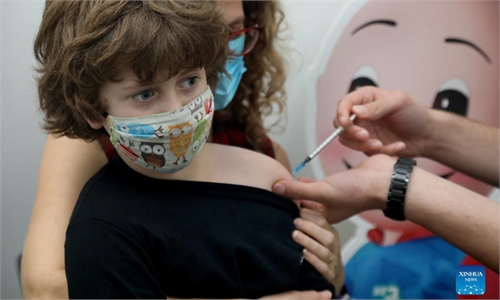US urged to disclose more info, conduct deeper probe into mysterious hepatitis outbreak in children

Photo: screenshot from website
There are many unanswered questions surrounding a potentially life-threatening hepatitis illness which has been affecting hundreds of children in more than 30 countries and regions. As the earliest case was reported in a hospital in the US state of Alabama, the country dodged to conduct a deeper probe into the causes of the outbreak and whether it is at all linked to COVID-19, which has caused suspicions worldwide.
The global toll of the sudden and unexplained hepatitis in children has risen to 621 cases from 34 countries, the European Centre for Disease Prevention and Control said in an update on May 20, according to CNN.
About half of those cases come from two countries - the US and the UK. In the US, unexplained cases of hepatitis are not routinely reported to public health authorities, making it difficult to know whether the 180 cases under investigation are an increase over what doctors normally see. From the public data of various countries, the US is one of the countries with the largest numbers of confirmed cases in the world.
Media reports also said that in the US, several children have needed liver transplants and five children have died from the mysterious illness.
The unknown hepatitis in children was first discovered in Europe and the US. Of all the known cases, the earliest confirmed one was a child admitted to a children's hospital in Alabama in October 2021.
The number of cases in the US is growing at a breakneck pace. The number of confirmed cases has increased by nearly 70 percent in just over 10 days compared with the number reported in early May, according to a May 18 announcement by the US Centers for Disease Control and Prevention.
In response to the recent rapid increase in cases, the US CDC said that many of them were not newly confirmed cases, but were traced through investigations of local admissions, and the number of cases under investigation continues to grow.
A health expert told the Global Times on condition of anonymity that it means there will be more confirmed cases as the investigation continues. A number of cases may be hidden across the US.
Since October, hospitals in Alabama, Ohio and elsewhere have found unusual cases of hepatitis in children after treating them. In Alabama, some doctors have been conducting a voluntary survey since October. Unfortunately, it doesn't seem easy for states to know about each other's unusual cases.
As can be seen from the US' attitude toward the COVID-19 pandemic, even one more issue with human lives at stake will not get enough attention under the "lie flat" strategy, the expert said.
In November 2021, after the fourth case was reported, doctors in Alabama asked the CDC for help. But it wasn't until mid-April, two weeks after Scotland, thousands of miles away, reported 14 cases and the British Health and Safety Agency issued an alert, that the US CDC finally issued an alert.
"We cannot speculate how much adverse impact five months will have on the prevention and treatment of hepatitis. But while US CDC experts agonize over whether it is unusual to have so many cases of acute hepatitis, we already know for sure that the key to defeating a pandemic is to do it fast," the expert said.
More than 300 cases of acute hepatitis in children of unknown cause in more than 20 countries and regions by April may be associated with the super antigen of the novel coronavirus, according to the latest study published in the prestigious international academic journal, The Lancet Gastroenterology and Hepatology.
The researchers suggested that the recent cases of acute hepatitis in children were probably the result of a coronavirus infection, followed by an adenovirus infection after the emergence of a viral reservoir in the intestinal tract.
After infection with coronavirus, the reservoir of viruses may lead to repeated super-antigen-mediated immune cell activation, such as the Multisystem Inflammatory Syndrome in Children (MIS-C). If such a reservoir is present and the child subsequently becomes infected with adenovirus (AdV), this super antigen-mediated effect may be more pronounced and may lead to immune abnormalities such as the recently reported acute severe hepatitis.
Since the beginning of the COVID-19 pandemic in April 2020, many countries have reported cases of multi-system inflammatory syndrome in children infected with COVID-19, many of whom have shown severe acute hepatitis symptoms.
However, despite papers published in prestigious international journals by experts from many countries said that the factors of COVID-19 should be thoroughly investigated to find out the sources of the acute hepatitis outbreak, the US CDC held a symposium on the treatment of acute hepatitis in children of unknown cause on May 19 but did not mention the novel coronavirus. There were even health officials who said clearly that none of the Alabama cases were related to coronavirus. Such an attitude has attracted much criticism.
Media reports showed the majority of children with hepatitis of unknown cause in Israel contracted the novel coronavirus around three and a half months before the onset of hepatitis. More than 70 percent of cases reported by the WHO Regional Office for Europe have also been infected with COVID-19.
The admission of a possible link between the unexplained hepatitis in children and COVID-19 would have a major impact on current US policy, the health expert said. "For political reasons, of course, the US is reluctant to investigate further. But a growing number of children are suffering. They know nothing about politics and the US should give them an answer."
As COVID-19 continues to spread, cases of hepatitis of unknown cause in children and monkeypox have aroused widespread concern. In the future, mankind may face many public health emergencies. In the face of these tests, all choices made out of selfish considerations will be cursed by history. Every responsible country should shoulder its responsibilities, analysts said.

